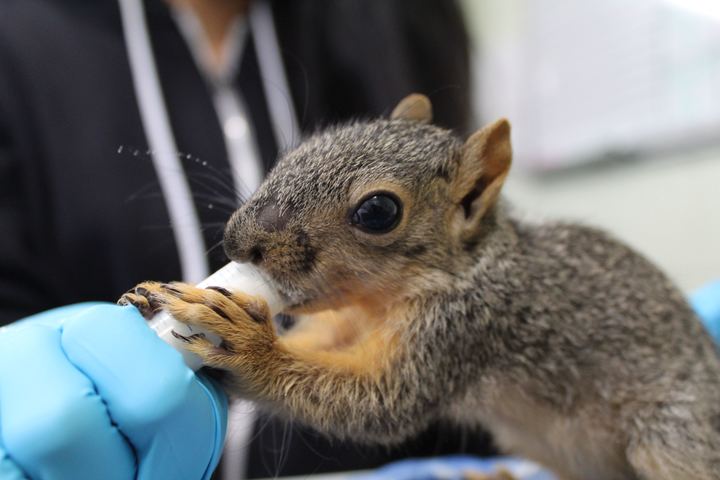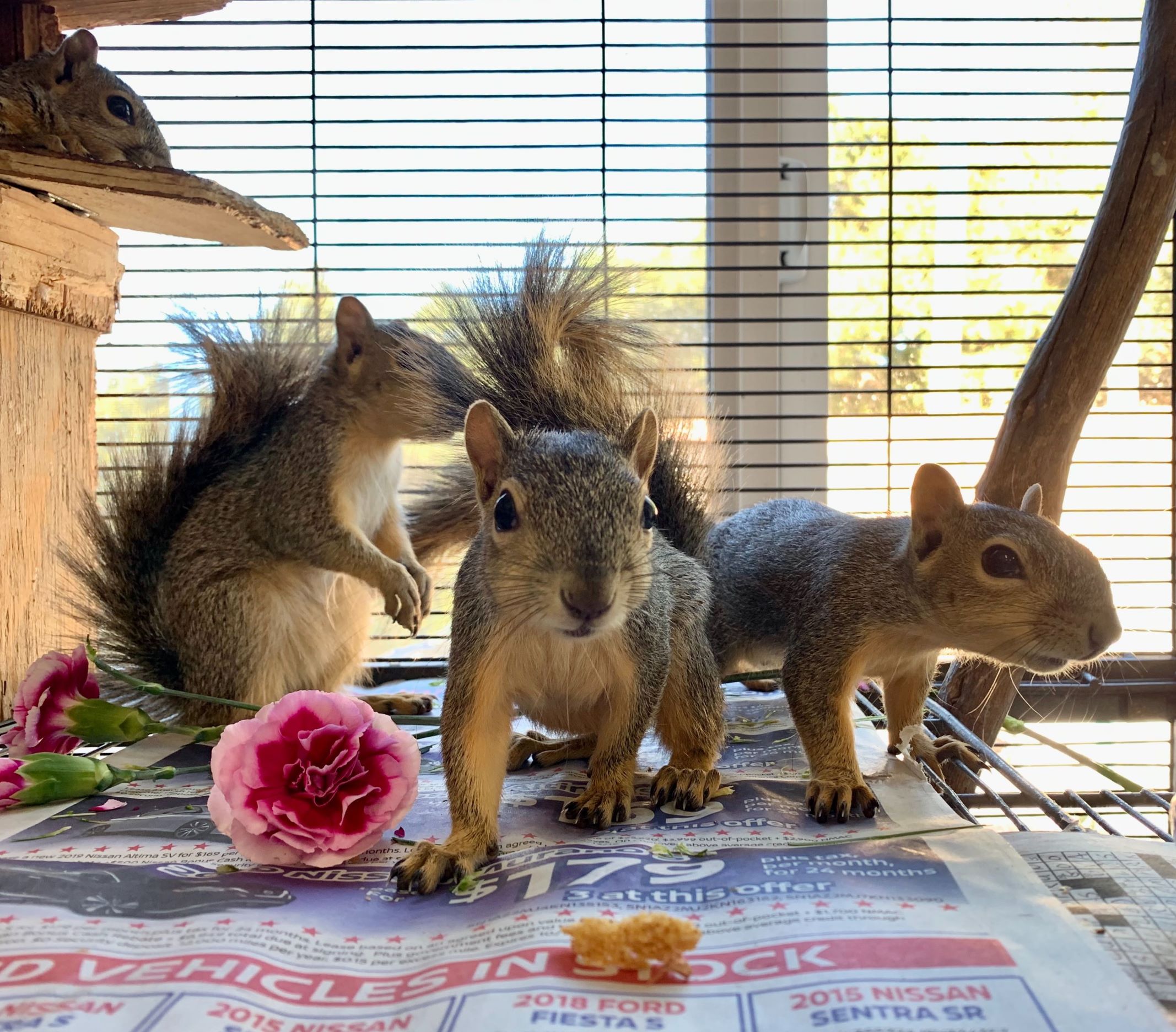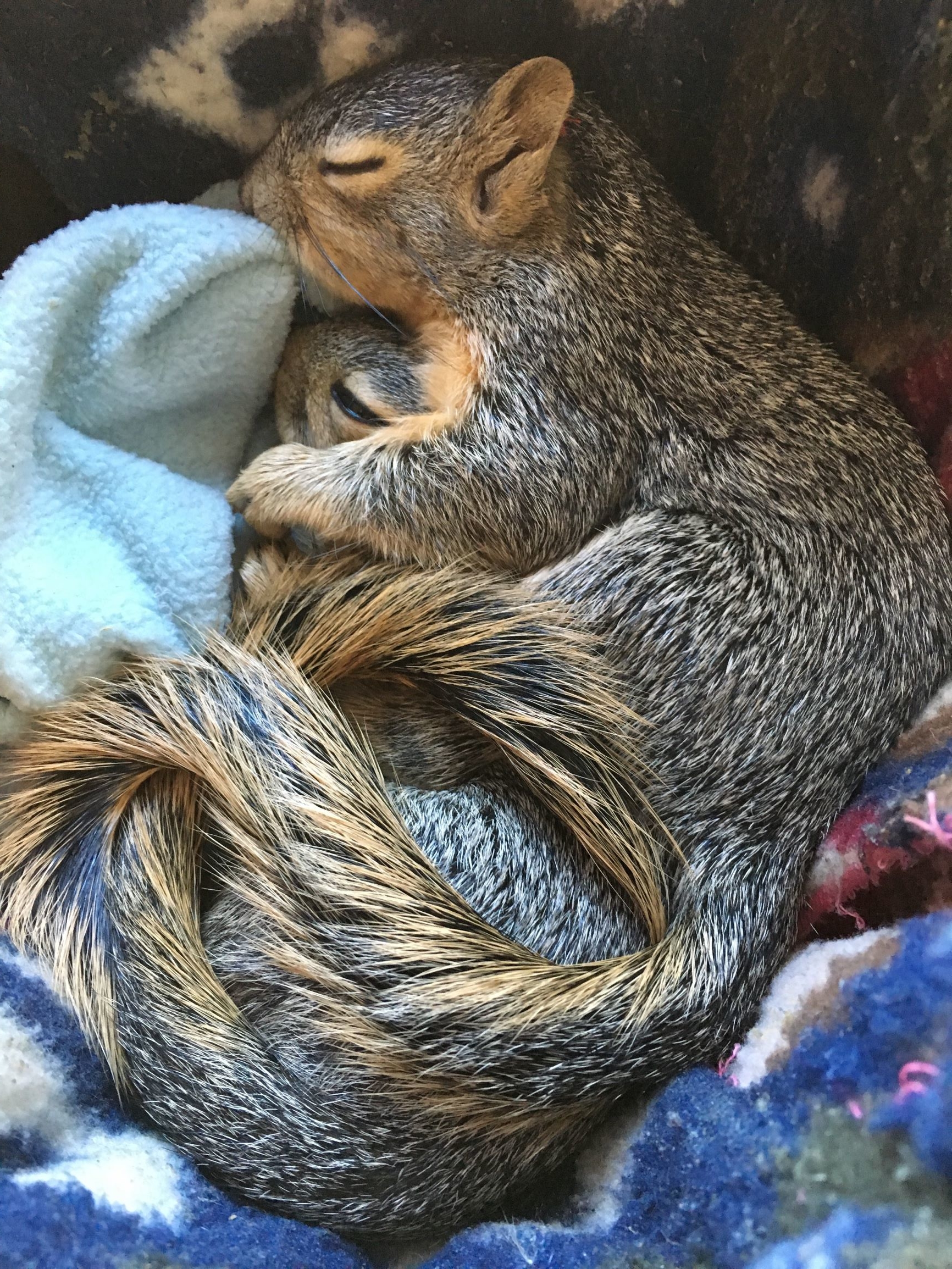The Squirrels Are Coming
By Jenn Guess, Senior Wildlife Technician

Squirrel kits are fed a special formula, photo by Cambria Wells
Early Spring is a busy time of year at California Wildlife Center (CWC). This is when we see an influx of orphaned Squirrels. If an orphaned Squirrel is a neonate (eyes closed, furless) or infant (eyes open, velvety fur), they are directed to our homecare facility where the Squirrels will receive a significant amount of hands-on care. Very young Squirrels require specific formulas on a schedule of up to six times a day. As the squirrels develop, they will transition formulas and will only need to be fed four times a day. Providing appropriate nutrition at different stages of life is vital in keeping patients from developing metabolic bone disease and other fatal deficits due to poor and inappropriate nutrition.

Squirrel patients receive flowers for enrichment, photo by Jenn Guess
Once neonate and infant Squirrels reach a certain weight, they are transferred to our facility in Calabasas. In our Orphan Care Unit, the Squirrels will continue to be fed specific formulas on a pre-designated schedule. They are also given small amounts of solid food so they can start to explore eating on their own. Staff closely monitors their weights to make sure that every Squirrel is progressing appropriately. The Squirrels are also provided enrichment. Some examples of enrichment are multiple sticks, branches, and pinecones to chew on, flowers to destroy, and various soft fabrics and hammocks to snuggle into. Eventually, each group of Squirrels receives a squirrel box. A squirrel box is a 1’x1’x1’ wooden box with a hatch door that mimics a nest.
At CWC, young Squirrels are placed into groups of about six individuals, and these groups will stay together as a family unit through their release. Once the unit is set, a group will not accept a new member. The family unit grows up in our Orphan Care Unit together and eventually moves into an outdoor enclosure. Outside, the groups of Squirrels continue to gain weight, get acclimated to the weather, and become more independent. After two weeks in our outdoor enclosures, a group is ready to be soft released, meaning the patients are provided shelter (their squirrel box), food, and water for three days at their new location. The Squirrels are then able to venture out on their own when they feel comfortable. Eventually, all of the Squirrels in the group will start to find their own food/water and build nests.

Young Squirrels sleeping, photo by Christiane Aldana
Not all baby Squirrels that are found need to be brought to CWC. Sometimes a Squirrel nest is compromised due to a predator attack, heavy winds, rain, or various other reasons. When a nest is damaged, it is not uncommon for baby Squirrels to fall to the ground. The mother Squirrel will often fix the nest before coming down to retrieve her babies. It is also possible that an adult Squirrel will have multiple nests. The mother might decide to check on an alternate nest and then take her young to the secondary location.
If you find a baby Squirrel on the ground and they do not have any obvious injuries, place them in a one-foot deep box with a soft towel and attach the box four feet off the ground to a nearby tree trunk. Make sure the box is not in direct sunlight. Heat some uncooked rice in the microwave until warm and place in a sock to create a makeshift heat source. Place the heat source on one side of the box so the Squirrel can choose to move towards or away from the heat. Leave the box for four hours to give the mother Squirrel time to retrieve her young. If the mother does not come back, contact CWC. If you find a baby Squirrel in the evening, bring it inside and keep it in a warm, quiet, dark location overnight and then try to re-nest the Squirrel first thing in the morning. At no point should you try to feed or give water to a baby Squirrel. If you find a baby Squirrel with an injury, contact CWC immediately at (310) 458-9453.
